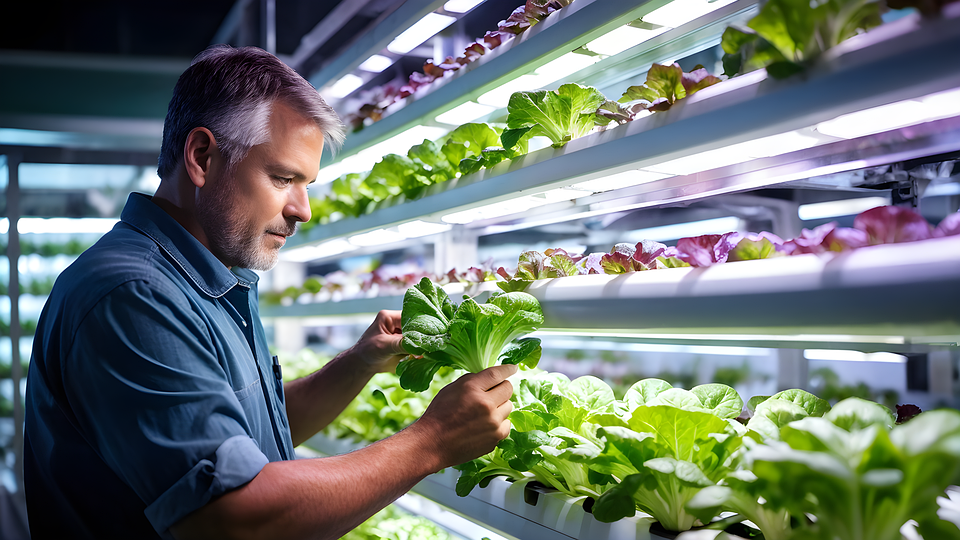
Mission-critical controlled environment agriculture (CEA) operations cultivating high-value crops increasingly rely on water treatment systems designed for maximum reliability and continuous operation.
Ozone-based sterilization methods, when engineered properly, provide unparalleled biosecurity and operational assurance, mitigating risks of pathogen transmission and ensuring regulatory compliance across commercial greenhouse environments.
Climate Control Systems Inc. is a leading innovator in greenhouse automation and environmental management technologies, offering tailored solutions that integrate climate optimization with resource-efficient sterilization methods such as ozone water treatment.
Rationale for Fail-Safe Ozone Sterilization
Recirculating hydroponic and irrigation systems in greenhouses are susceptible to microbial contamination, including viruses (e.g., Tomato Brown Rugose Fruit Virus), algae and bacteria.
Direct contact with untreated water can devastate high-value crops, incur large financial losses, or even result in entire crop failure. Ozone water treatment is a proven sterilization technique, delivering powerful oxidative disinfection without leaving chemical residues, and effectively inactivating a wide range of pathogens including viruses, bacteria, and persistent pests like liverwort.
Ozone systems employ ozone generators and sensor arrays, automating failover and alarm protocols in mission-critical settings. These systems are vital in CEAs, where continuous water circulation and high crop density demand uninterrupted sterilization.
Key engineering approaches include ozone generation distributed monitoring.
Engineering Principles for Greenhouse Climate Optimization
Ozone water treatment is engineered at multiple levels for greenhouse climate optimization:
- Automated Disinfection Loop: Sensor-driven contamination detection activates reserve ozone power, ensuring constant sterilization independent of manual intervention.
- Backup Power Integration: UPS and backup generators keep ozone production and critical water pumps operational through power interruptions, vital for safeguarding high-value crops.
- Highly Responsive Monitoring: Real-time ORP (oxidation-reduction potential) or Ozone PPM sensors provide data-driven automatic adjustment.
- Remote Alerts and Data Logging: Internet-connected control panels continuously log sterilization data and notify operators in the event of out-of-spec measurements or system faults, ensuring timely corrective action and historical compliance documentation.
These engineering redundancies enhance the fail-safe nature of sterilization and fulfill strict standards for greenhouse climate optimization by ensuring clean irrigation and hydroponic water at all times.
Scientific Efficacy of Ozone Systems
Research demonstrates that ozone systems, when properly dosed and maintained, can achieve complete inactivation of viruses in greenhouse water, sometimes with exposure as little as 20 minutes, depending on viral load.
“When ozonized water acts on the surface of the solid phase or in the liquid phase, the O3 molecules and active oxides cooperate to attack pathogens. At present, it is generally considered that the mechanism of O3 disinfection against pathogenic microorganisms is attributed to the diffusion of O3 to the surface of the microbial membrane, through the rapid reaction kinetics of O3 and pathogens.” – NIH Study, Cai, Yamei, and others
Studies with cold plasma-ozone and nanobubble ozone systems show heightened reactive oxygen species production and improved sterilization efficacy at lower energy costs, which is critical for sustainable greenhouse operations.
Contact time (CT), ozone concentration, and water flow rates are critical parameters. Modern greenhouse installations routinely integrate automated controls to precisely regulate dose, flow, and contact times.
Compliance, Sustainability, and Cost Efficiency
Ozone systems support compliance with international food safety and export standards, ensuring crops from CEAs meet rigorous purity and quality requirements. Patented Nano Bubble injection pumps offer nano bubble ozonation, increasing process efficiency and reducing ozone loss. As ozone decomposes rapidly, no chemical residues remain, supporting organoleptic and organic certification needs.
Ozone treatment is also eco-friendly and aligns with best practices for sustainable food production. It reduces the need for chemical disinfectants, minimizes water wastage by enabling safe water recycling, and does not contribute to salinity or soil pollution—a growing concern for greenhouse and hydroponic systems.
Future Outlook: Adaptive Fail-Safe Designs
Ozone water treatment systems, engineered with advanced fail-safe protocols, remain central to the operational integrity of high-value controlled environment agriculture. For commercial producers, these systems secure uninterrupted sterilization, optimize greenhouse climate, and safeguard yield and business continuity from unpredictable threats.
By leveraging intelligent automation and resilience engineering, Climate Control Systems enables growers to maximize yield, reduce labor costs, and maintain sustainable, high-quality food production under variable environmental conditions.
The commitment to innovation and comprehensive technical support makes them a trusted partner in advancing sustainable agriculture and climate-smart greenhouse operations worldwide. Contact Climate Control Systems today.
